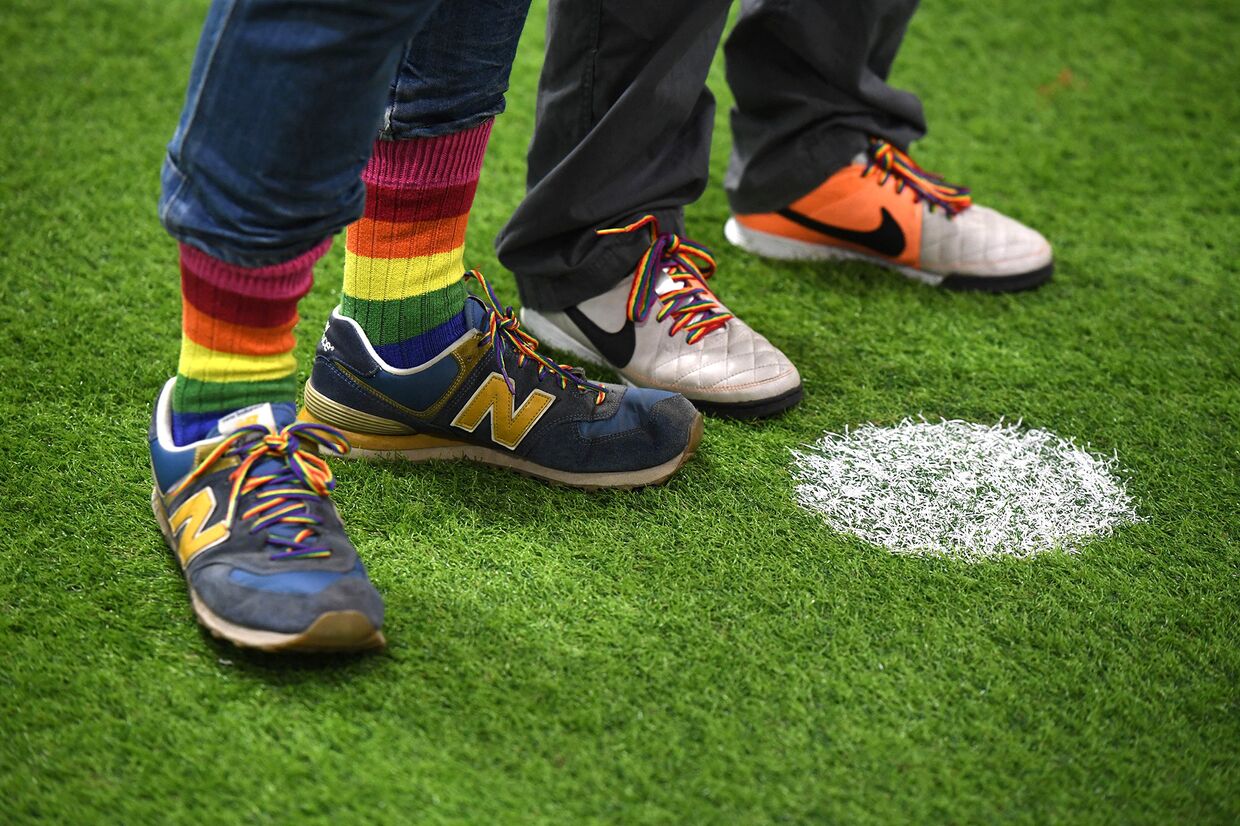On March, 7 Zamoskvorechny district court in Moscow reviewed the case of the designation of the foreign-agent status to Sports LGBT-Community. Lawyers from Coming Out represented the organization in court. Let’s see what’s wrong with the Ministry of Justice’s reasoning and why the court’s decision is illegitimate and blatantly discriminating.
On March, 7 Zamoskvorechny district court in Moscow reviewed the case of the designation of the foreign-agent status to Sports LGBT-Community. Lawyers from Coming Out represented the organization in court. Let’s see what’s wrong with the Ministry of Justice’s reasoning and why the court’s decision is illegitimate and blatantly discriminating.
There are two possible grounds to receive a foreign-agent status: foreign funding/influence and conducting political activity. However, the representative of the Ministry of Justice who was present in court wasn’t able to explain what kind of political activity Sports LGBT-Community had been conducting.
«Based on the clarification of the Ministry of Justice, we can conclude that there were two grounds to include the organization to the register of foreign agents. Firstly, one of the organization’s activists posted comments criticizing the actions of Russian government on their personal social media. Secondly, Sports LGBT-Community hosted sport events for LGBT people with the aim of „LGBT-propaganda“ which goes against the traditional values of the Russian Federation», — comments the lawyer from Coming Out, Ksenia Mikhailova.
According to Yulia Grinvich, the head of Sports LGBT-Community, the previously mentioned activist posted everything on their personal social media. However, the presence of their contacts on Sports Community’s page, in the opinion of the Ministry of Justice, confirms that the organization is responsible for its employee. But the representative of the Ministry of Justice wasn’t able to refer to the law, stating the aforementioned.
At this point no Russian law, including the law prohibiting «LGBT-propaganda», doesn’t forbid queer people to host events and provide services for other queer people. Therefore, Sports LGBT-Community hasn’t committed anything illegally «propagandistic».
Beyond that, according to the law, organizations operating in sports cannot be recognized as foreign agents. The only exception: unless they carry out activity that goes against the traditional values.
«But out of the Ministry’s comments it is totally unclear whether they consider any activity conducted by LGBT-people for LGBT-people as contradictory to the traditional values».
Ksenia Mikhailova
Despite all these arguments, the judge upheld the Ministry’s decision — Sports LGBT-Community still maintains the status a foreign agent.
«The Ministry of Justice’s arguments were vacuous. It was miserable to watch the Ministry of Justice’s representative get confused and flip through pages not to knowing what to respond. I had a flash of hope that perhaps the judge would hear all this [our arguments] and then go against the system. But no miracle happened».
Yulia Grinvich
The lawyer from Coming Out is going to appeal against the court’s illegitimate and discriminating decision.
«This is direct discrimination. Any other organization engaged in the same activity: hosting tourist rallies and sports competitions but not for LGBT-people, — would never be recognized as a foreign agent. In this case, at the sight of the LGBT abbreviation the Ministry of Justice reacts by default and recognizes the organization a foreign agent, and the court upholds the decision afterwards. Even though there are obvious grounds for it to be revoked».

